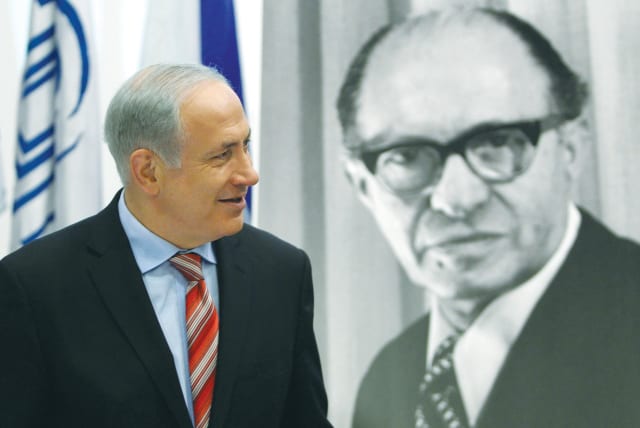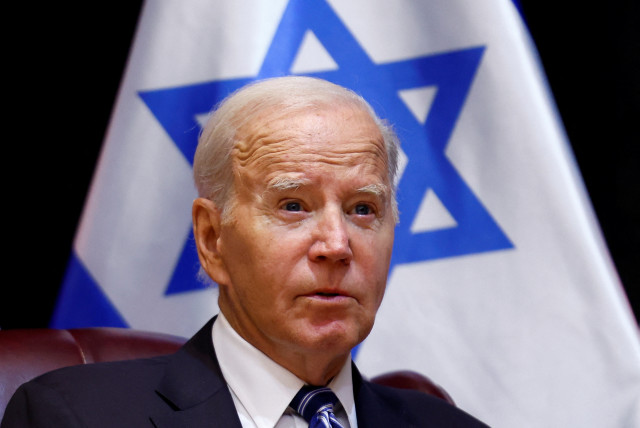A new vision is needed to address the Israeli-Palestinian conflict - opinion

If world leaders, including Israeli and Palestinian leaders, truly want an end to the Israeli-Palestinian conflict, they need to stop focusing on old ideas that expired a long time ago.
It was an address for the history books. An Israeli prime minister, Menachem Begin, addressed and shared his vision of peace with the Egyptian people. Once called a terrorist, with a price on his head by the British government, Begin’s election to lead the Jewish state in 1977 was greeted around the world with apprehension. The promise of peace between two enemies was made more realistic by the personality extending his hand.
Begin laid out his vision. “We do not want any clashes with you. Let us say one to another, and let it be a silent oath by both peoples, of Egypt and Israel: no more wars, no more bloodshed, and no more threats. Let us not only make peace; let us also start on the road to friendship, sincere and productive cooperation. We can help each other. We can make the lives of our nations better, easier, happier…No more wars; peace, a real peace, and forever,” he said.
Within two years of Egyptian President Anwar Sadat and Begin’s vision of peace being announced to the world, a peace treaty between the two warring nations was signed. Although painstaking negotiations were required over the smallest of details to make peace, it was the seminal vision of no more bloodshed that brought peace to the region for the first time.
The world is desperately in need of the same vision today. Instead of leaders with a grand vision for the future, we have leaders stuck in the past. They regurgitate the same stale ideas that haven’t worked for 30 years. Their dependence on ideas that the world knows cannot work speaks of a lack of vision, hope, and creativity. There is no imagination being utilized in the Middle East to think of a better future for the region and its people. Instead of using imagination to formulate new ideas, world and regional leaders either stay in their corners, refusing to budge from the status quo, or insist on repeating the same failed ideas year after year.
Three areas of global focus demonstrate the world’s lack of vision in the Israeli-Palestinian conflict. The world is focused on the two-state solution to the Israeli-Palestinian conflict, even though it has consistently been shown to be a failure. The Palestinian Authority has shown itself to be corrupt to its core, yet America and other nations have begun promoting a “revitalized” Palestinian Authority. The world has jumped on the idea of sanctioning “extremist settlers,” making it seem like the singular impediment to ending the Israeli-Palestinian conflict is an ever-growing scourge of violent Jews in Judea and Samaria. Instead of crafting new ideas and policies, the world regresses and exacerbates the Israel-Palestinian conflict by focusing on unproductive issues.
AT A PRESS CONFERENCE last month, US President Joe Biden summarized his latest phone call with Israeli Prime Minister Benjamin Netanyahu, saying that a two-state solution is the ultimate answer. “Look, I made it clear to the Israelis, to Bibi Netanyahu, and to his war cabinet that I think the only ultimate answer here is a two-state solution. That’s real,” he said.
It is unclear how President Biden measures what is real and what is fantasy, but after 30 years of failing to negotiate a two-state solution to the Israeli-Palestinian conflict, a safe conclusion is that it isn’t a real option. Indeed, 84% of recently surveyed Palestinians in the West Bank support the October 7 massacre carried out by Palestinian terrorists; 98% of Palestinians feel pride since the attacks; and 90% of Palestinians believe that “coexistence is increasingly impossible.” There is no realistic way to achieve the two-state solution.
On a recent visit to Israel, American National Security Advisor Jake Sullivan restated America’s insistence that the Palestinian Authority should govern Gaza after Israel finishes off the Palestinian terrorists in Gaza. In the face of Israel’s objection to the Palestinian Authority, an organization rotted to the core with corruption and support of terrorism, Sullivan said, “We do believe that the Palestinian Authority needs to be revamped and revitalized; needs to be updated in terms of its method of governance, its representation of Palestinian people. That will require a lot of work by everybody who is engaged in the Palestinian Authority, starting with the president, Mahmoud Abbas, who I will go to see… And ultimately, it’s going to be up to the Palestinian people to work through their representation.” However, Sullivan could not point to any indications that the Palestinian Authority would revamp itself.
The Biden administration, from State Department spokesperson Matthew Miller all the way to the president, has discussed the problem of “settler violence.” Biden stated, “I have been emphatic with Israel’s leaders that extremist violence against Palestinians in the West Bank must stop and that those committing the violence must be held accountable. The United States is prepared to take our own steps, including issuing visa bans against extremists attacking civilians in the West Bank.” Germany, Belgium, and the European Union all jumped on the same cause, claiming they had their own lists of violent settlers.
Jews make up small minority of West Bank violence
Yet anyone familiar with violence in the West Bank knows that violence perpetrated by Jews accounts for 10% of the violence, while Palestinian terrorism accounts for the other 90%. They also know that since the start of the war, violence has decreased by 50% in the West Bank. Settler violence is blown out of proportion and is statistically so insignificant that it doesn’t warrant mentioning.
If world leaders, including Israeli and Palestinian leaders, truly want an end to the Israeli-Palestinian conflict, they need to stop focusing on old ideas that expired a long time ago, including fantasies such as a revamped Palestinian Authority. Leaders need to think creatively and address actual problems that are impediments to peace, such as Palestinian intransigence, terrorism, and corruption. Until the leaders take new approaches, they can expect the same results from their old ideas.
The writer is a certified interfaith hospice chaplain in Jerusalem and the mayor of Mitzpe Yeriho, Israel. She lives with her husband and six children.
Jerusalem Post Store
`; document.getElementById("linkPremium").innerHTML = cont; var divWithLink = document.getElementById("premium-link"); if (divWithLink !== null && divWithLink !== 'undefined') { divWithLink.style.border = "solid 1px #cb0f3e"; divWithLink.style.textAlign = "center"; divWithLink.style.marginBottom = "15px"; divWithLink.style.marginTop = "15px"; divWithLink.style.width = "100%"; divWithLink.style.backgroundColor = "#122952"; divWithLink.style.color = "#ffffff"; divWithLink.style.lineHeight = "1.5"; } } (function (v, i) { });

